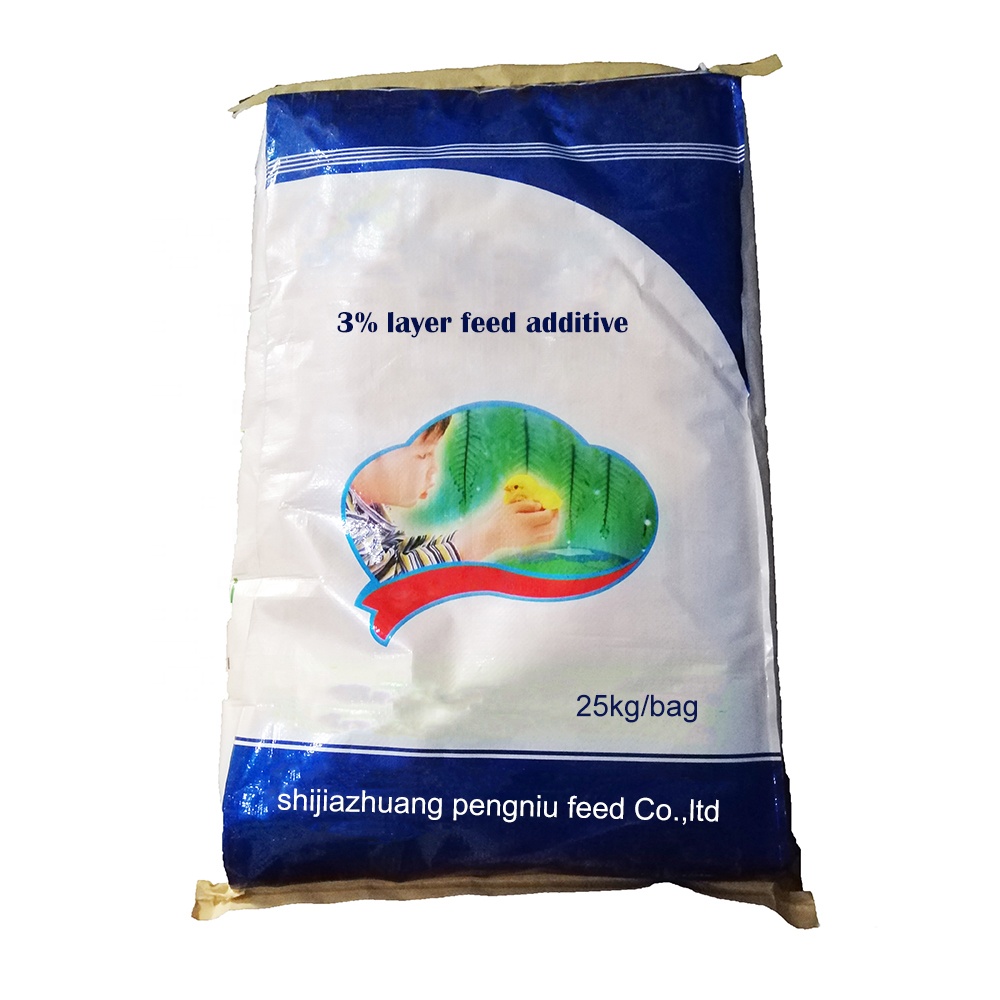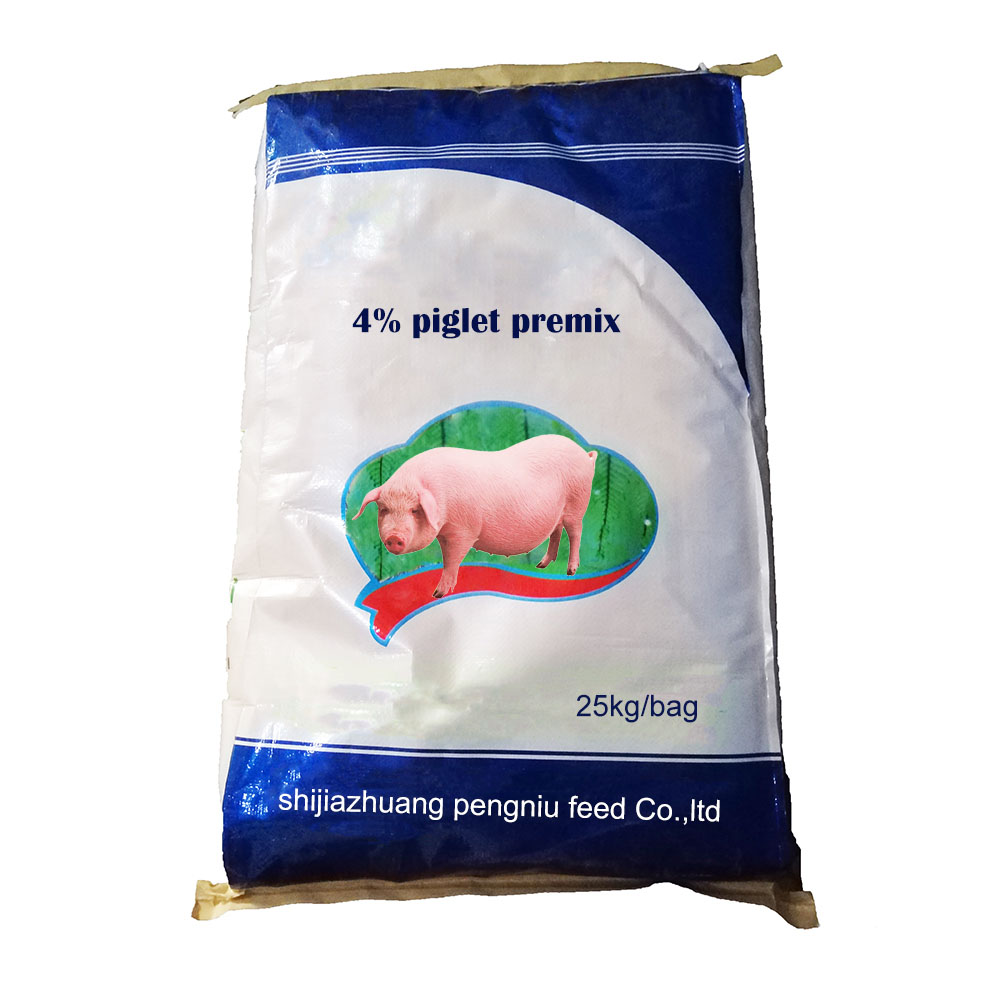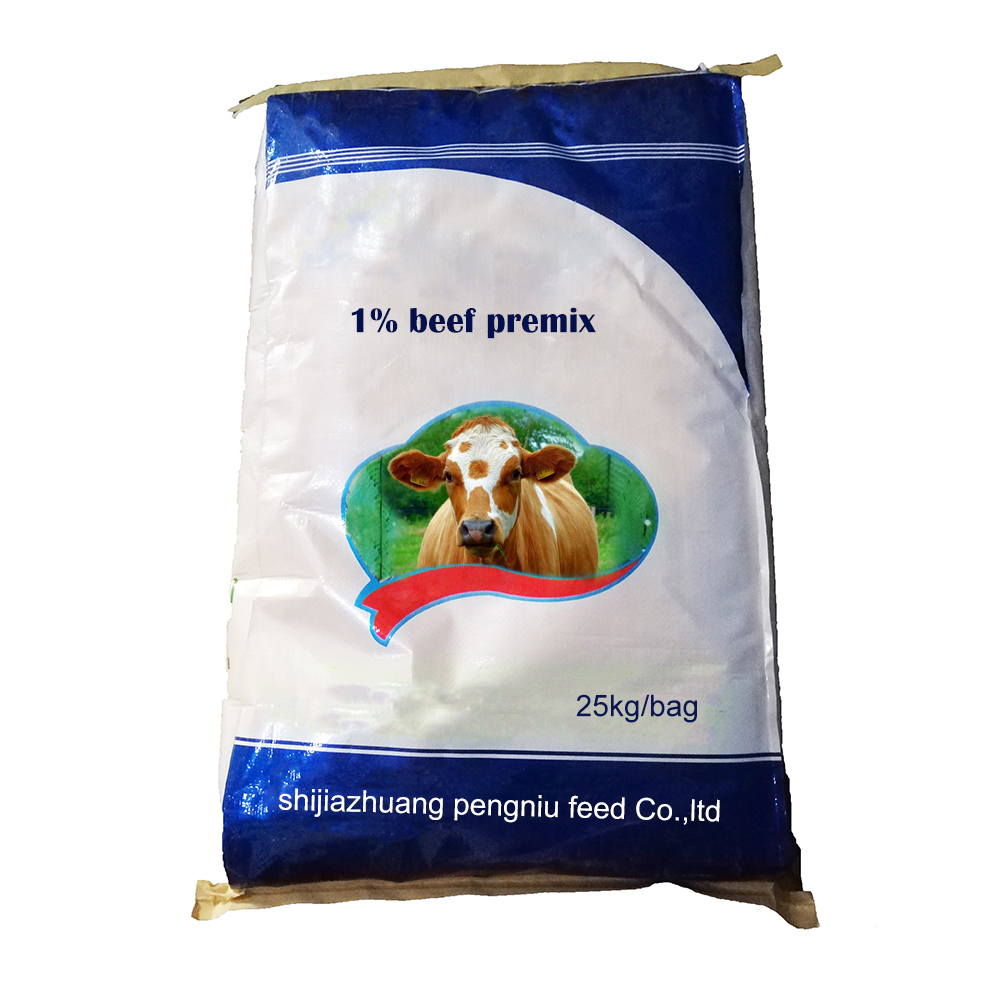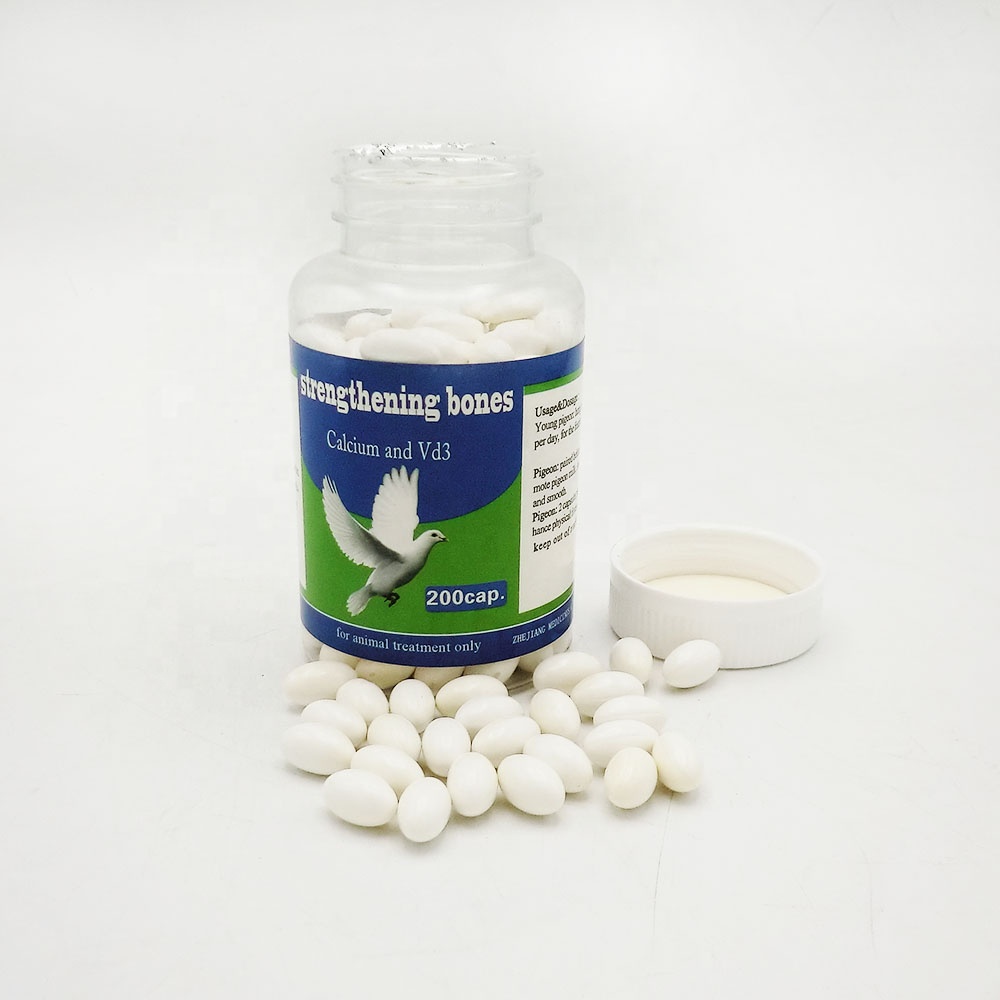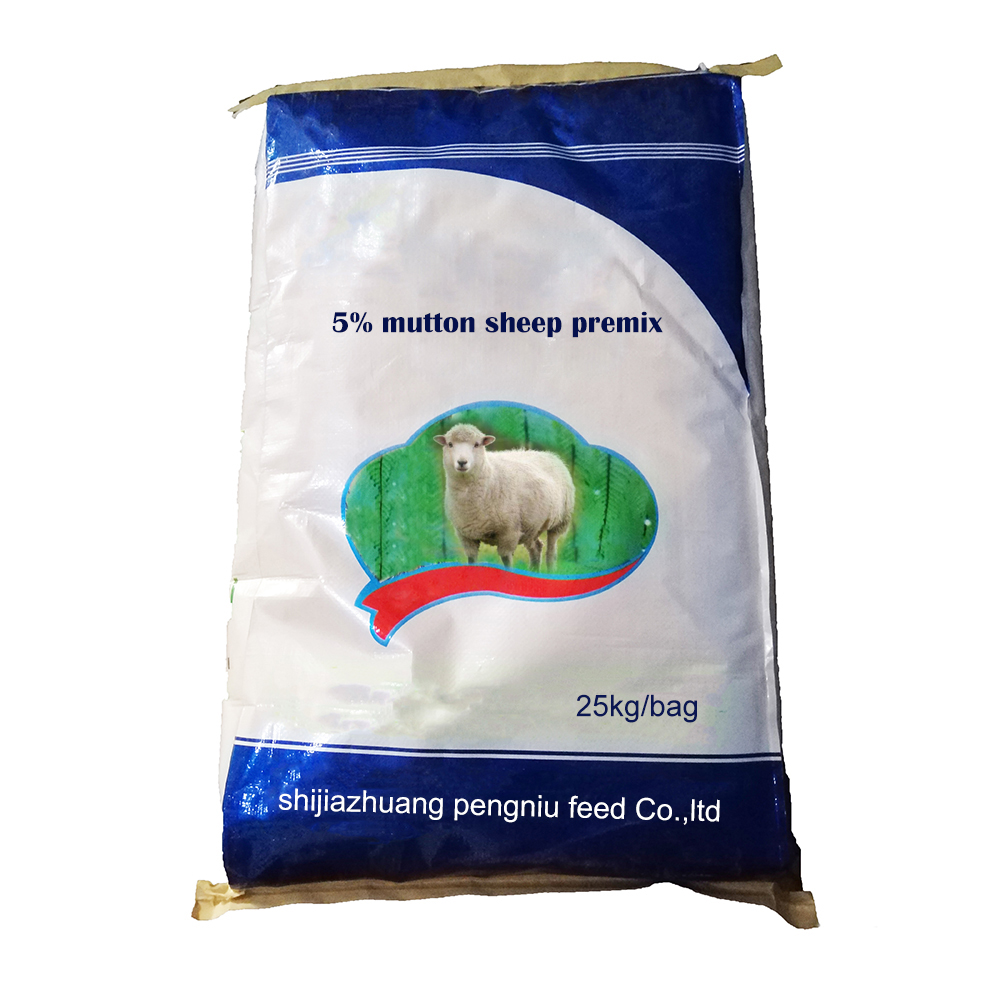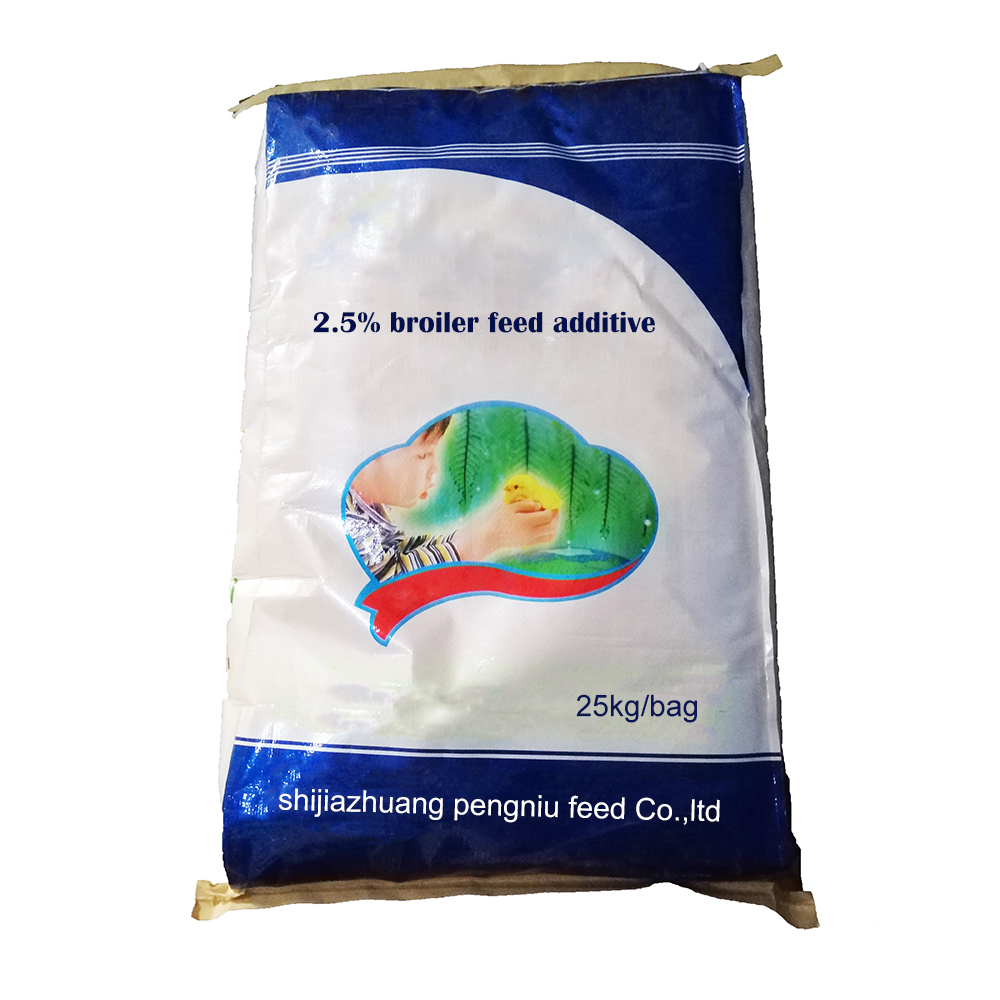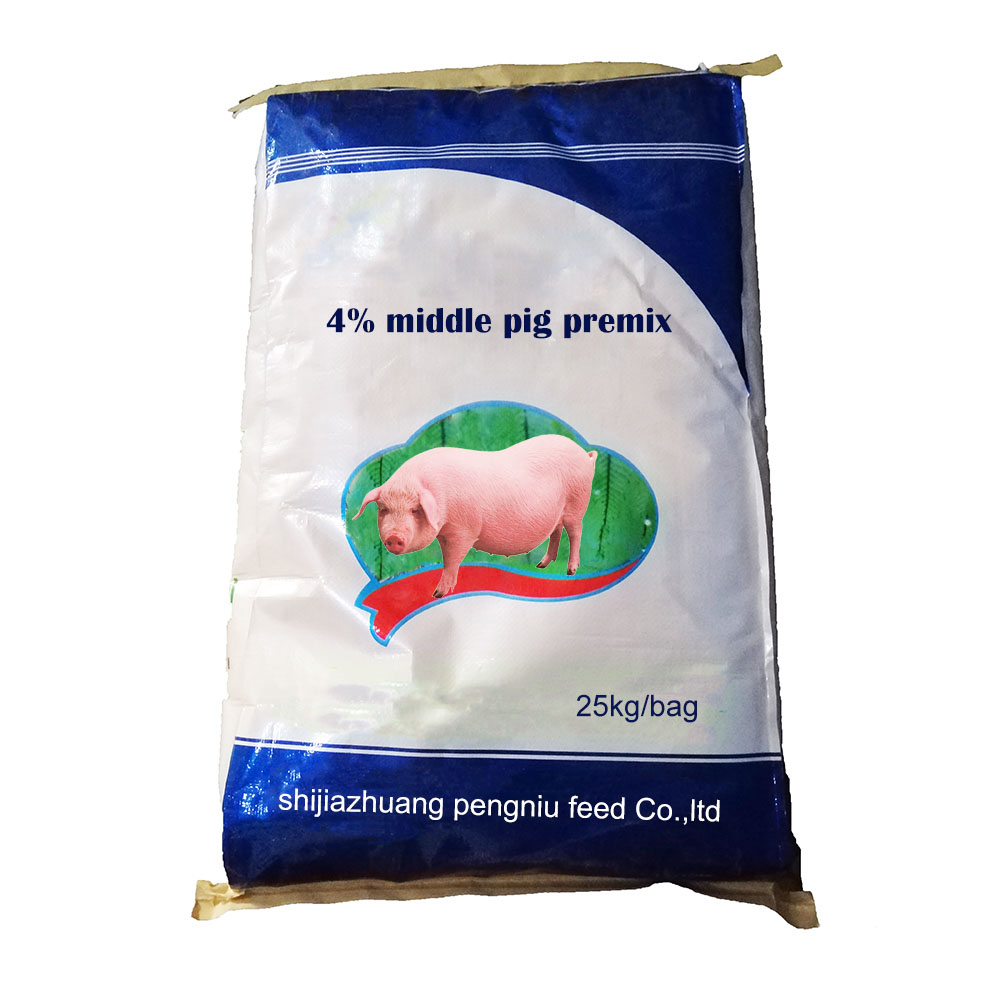Industry Trends in Poultry Health Management
The global poultry industry is undergoing a significant paradigm shift, primarily driven by increasing consumer demand for antibiotic-free and sustainably raised animal products. This shift necessitates innovative approaches to poultry health management that extend beyond conventional prophylactic antibiotic use, focusing instead on robust preventative care and natural interventions. Key drivers include stringent regulatory pressures concerning antimicrobial resistance, a heightened awareness of animal welfare standards, and the economic imperative to reduce production losses from diseases while maintaining high feed conversion ratios. Traditional methods, often reliant on broad-spectrum antibiotics, have led to concerns about residues in meat and eggs, alongside the accelerating development of resistant bacterial strains, posing a global public health threat. Consequently, the market is now actively seeking natural, effective alternatives capable of bolstering avian immunity, preventing common ailments, and promoting overall flock vitality through a holistic lens. This trend has significantly amplified the demand for botanical solutions. The strategic integration of phytogenic compounds, particularly those derived from time-honored chinese medicinal practices, is rapidly emerging as a cornerstone of modern poultry farming. These herbal interventions offer a comprehensive approach, addressing not only specific pathogens but also enhancing gut integrity, mitigating stress, and optimizing nutrient absorption, thereby contributing to the development of more robust and resilient poultry flocks. Furthermore, the global push for organic and ecological farming amplifies the relevance of natural health solutions, positioning botanical extracts and sophisticated formulations as an indispensable part of future poultry operations globally, supporting sustainable growth and meeting evolving market expectations for healthier, safer poultry products. The increasing demand for solutions like herbs for poultry is thus intrinsically linked to these overarching industry dynamics, providing a viable, eco-friendly pathway to superior flock health and enhanced productivity.
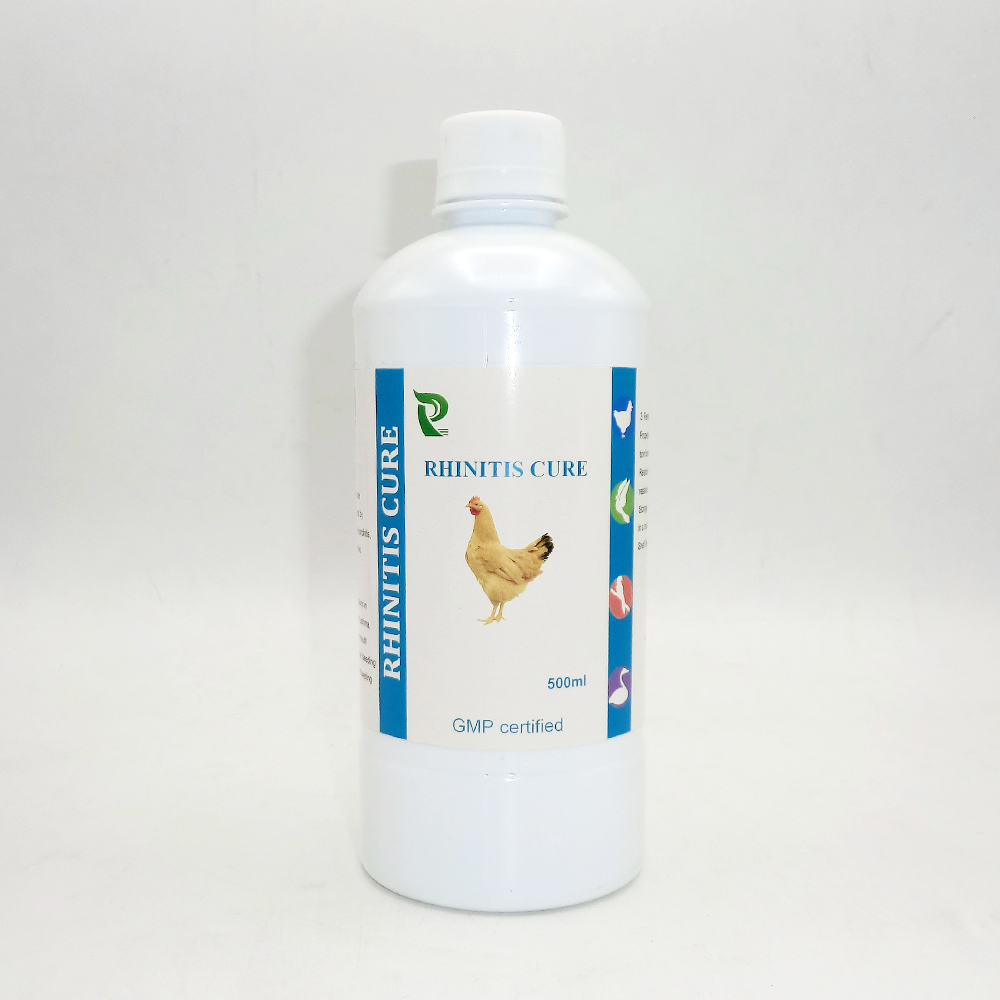
The specific challenges faced by poultry producers often revolve around prevalent respiratory diseases, pervasive gastrointestinal issues, and stress-induced immunosuppression, all of which can significantly impact productivity and profitability. Respiratory infections, such as Infectious Bronchitis (IB), Newcastle Disease (ND), and Avian Influenza (AI), alongside bacterial challenges like Mycoplasmosis and Colibacillosis, remain major concerns that necessitate effective management strategies beyond standard vaccination programs alone. While vaccines provide specific immunity against certain strains, the dynamic nature of these pathogens and the continuous emergence of new variants frequently require supplementary measures. The focus has decisively shifted towards strengthening the birds' innate immune response and creating an internal environment less conducive to pathogen proliferation, moving towards a proactive rather than reactive health model. This is precisely where the therapeutic potential of herbs for poultry becomes profoundly evident, offering natural antimicrobial, anti-inflammatory, and immunomodulatory properties. Companies are increasingly investing substantial resources into research and development to identify, isolate, and validate plant-derived compounds with scientifically proven efficacy against common poultry pathogens and symptomatic expressions, seeking to significantly reduce reliance on synthetic pharmaceutical interventions. This steadfast commitment to scientific rigor ensures that herbal solutions are not merely traditional remedies but represent evidence-based, technically sound additions to modern poultry husbandry, providing a robust, sustainable framework for comprehensive disease prevention and control. The integration of advanced extraction technologies, meticulous standardization, and stringent quality control standards further elevates the credibility and guarantees the consistent performance of these natural products, aligning seamlessly with the industry's critical need for reliable, scalable solutions applicable to large-scale commercial operations. The continued advancement of herbs for poultry is crucial for a resilient future.
Technical Parameters and Efficacy of Herbal Formulations
The effectiveness of herbal interventions in poultry hinges on a meticulous understanding of their active phytochemical constituents and their precise physiological mechanisms of action within the avian system. For specialized products like Rhinitis Cure, which leverages the inherent power of herbs for poultry diseases, the technical parameters are rigorously defined, extending far beyond simplistic traditional botanical descriptions. These parameters include standardized extract ratios, precise quantification of key active compounds (e.g., specific flavonoids, potent saponins, complex polysaccharides, or aromatic essential oils), and comprehensive bioavailability profiles. For instance, a high-efficacy herbal formulation targeting respiratory health would typically specify a minimum percentage of crucial volatile oils, such as eucalyptol or thymol, which are well-recognized for their bronchodilatory, expectorant, and mild antiseptic properties. Quality assurance protocols, often meticulously aligned with international standards such as ISO 22000 for feed safety management and Good Manufacturing Practices (GMP) for production, are implemented to ensure unparalleled batch-to-batch consistency in both composition and therapeutic potency. Furthermore, the particle size distribution of powdered herbal supplements is a critical physical parameter for ensuring optimal homogeneous mixing in feed and efficient absorption within the avian digestive tract, typically necessitating micronization to significantly enhance the surface area available for enzymatic action and absorption. The stability and projected shelf life under various environmental conditions are also vital parameters, often achieved through advanced drying techniques and protective packaging that effectively prevents the degradation of delicate active ingredients, thereby guaranteeing consistent product efficacy from the point of manufacture through to final consumption by the birds. Understanding and scrutinizing these detailed technical specifications allows poultry producers to confidently select products that offer predictable, reliable, and scientifically validated performance, transitioning beyond anecdotal evidence to truly data-driven decision-making in sophisticated poultry health management. High-quality herbs for poultry are defined by these metrics.
The scientific validation of these herbal formulations often involves extensive in-vitro and in-vivo studies conducted by independent research institutions or university faculties. In-vitro assays might precisely assess antimicrobial activity against common poultry pathogens such as Escherichia coli, Salmonella enterica, and Pasteurella multocida, or meticulously evaluate antioxidant and anti-inflammatory capacities using advanced cell culture models. In-vivo trials, conducted in rigorously controlled poultry house environments, measure tangible, performance-driven metrics including Feed Conversion Ratio (FCR), daily weight gain (ADWG), overall mortality rates, and the incidence and severity of specific herbs for poultry diseases. For instance, a product specifically designed to mitigate respiratory distress, like Rhinitis Cure, would be comprehensively evaluated on its ability to effectively reduce coughing, sneezing, and nasal discharge, alongside objective improvements in lung pathology scores and overall bird comfort and activity levels. These trials frequently involve comparing the herbal treatment groups against placebo control groups and, in some cases, against conventional pharmaceutical interventions to empirically demonstrate comparable or superior efficacy and safety profiles. Data derived from such robust trials, often subjected to rigorous peer-review processes and published in reputable scientific journals, provide the indispensable empirical evidence necessary for poultry producers to make truly informed, evidence-based decisions about strategically integrating these natural solutions into their comprehensive flock health programs. This robust scientific backing elevates herbal medicine for poultry from traditional belief to a verifiable, performance-driven strategy for significantly enhancing overall flock health and productivity in a sustainable manner.
Manufacturing Process and Quality Assurance
The production of high-quality herbs for poultry formulations, such as Rhinitis Cure, involves a highly sophisticated multi-stage manufacturing process that rigorously prioritizes purity, optimal potency, and uncompromised safety. This meticulous process begins with the careful and ethical sourcing of premium raw herbal materials, often cultivated under rigorously controlled agricultural conditions or ethically wild-harvested from pristine natural environments, ensuring they are entirely free from heavy metals, synthetic pesticides, mycotoxins, and other undesirable contaminants. Each incoming batch of raw material undergoes rigorous analytical testing for precise botanical identification, accurate active compound quantification, and comprehensive microbiological purity assessments, adhering strictly to stringent internal standards and internationally recognized guidelines like ISO 9001 for quality management systems and potentially specific organic or agricultural certifications. Following the meticulous acceptance criteria, the raw herbs are then processed through advanced extraction methods, such as solvent extraction (e.g., using food-grade water or ethanol to selectively isolate specific phytochemicals), precise pulverization into ultra-fine powders, and sometimes subsequent granulation for enhanced ease of mixing and homogeneous distribution within animal feed. In stark contrast to industrial processes such as casting or forging, which are intrinsically relevant to metal fabrication, herbal processing predominantly emphasizes gentle, low-heat methods that are meticulously designed to preserve the delicate integrity and maximum bioactivity of labile plant compounds, ensuring their therapeutic properties remain intact. The manufacturing facilities typically operate under strict Good Manufacturing Practices (GMP) protocols, ensuring rigorously sterile environments, precise temperature and humidity controls throughout all processing stages, and minimal human intervention to prevent contamination and consistently maintain product uniformity and stability across all production runs.
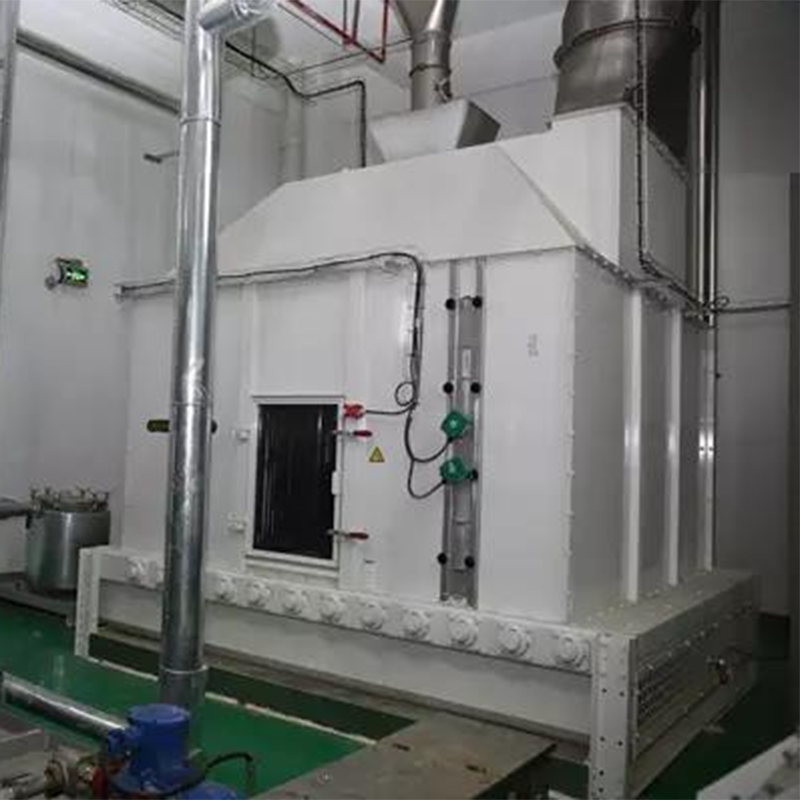
A critically important phase in the manufacturing of effective chinese medicinal herbal products for poultry is the precise blending and final formulation stage. Here, meticulously weighed quantities of standardized herbal extracts and other inert, feed-grade carriers are homogeneously mixed using advanced machinery to achieve the exact final product specification. This often involves the use of high-shear blenders and precision mixing equipment to ensure the absolutely uniform distribution of active ingredients, which is paramount for consistent dosing and predictable therapeutic effects when administered in animal feed. Post-blending, the resultant product undergoes further comprehensive quality control checks, including highly accurate moisture content analysis, detailed particle size distribution analysis, and re-testing for precise active compound concentration to confirm it unequivocally meets all predetermined specifications. Advanced analytical techniques such as High-Performance Liquid Chromatography (HPLC) or Gas Chromatography-Mass Spectrometry (GC-MS) are routinely employed to accurately quantify specific marker compounds, rigorously verifying both the identity and the precise potency of the herbal blend. The final product is then carefully packaged in specialized, multi-layered packaging materials, specifically designed to provide superior protection against moisture ingress, light degradation, and oxidative processes, thereby maximizing shelf life and preserving the product's full efficacy over time. Each production batch is assigned a unique lot number, enabling full and comprehensive traceability from the initial raw material sourcing all the way through to the finished product. This rigorous, multi-faceted quality control and complete traceability system collectively ensures that every package of herbal poultry supplement delivers consistent, reliable performance and adheres to the absolute highest standards of safety and efficacy throughout its projected usage lifespan, offering unparalleled peace of mind to poultry operations in diverse sectors, including commercial broiler farms, laying hen operations, and specialized breeder farms, ensuring that the benefits of herbs for poultry are consistently delivered.
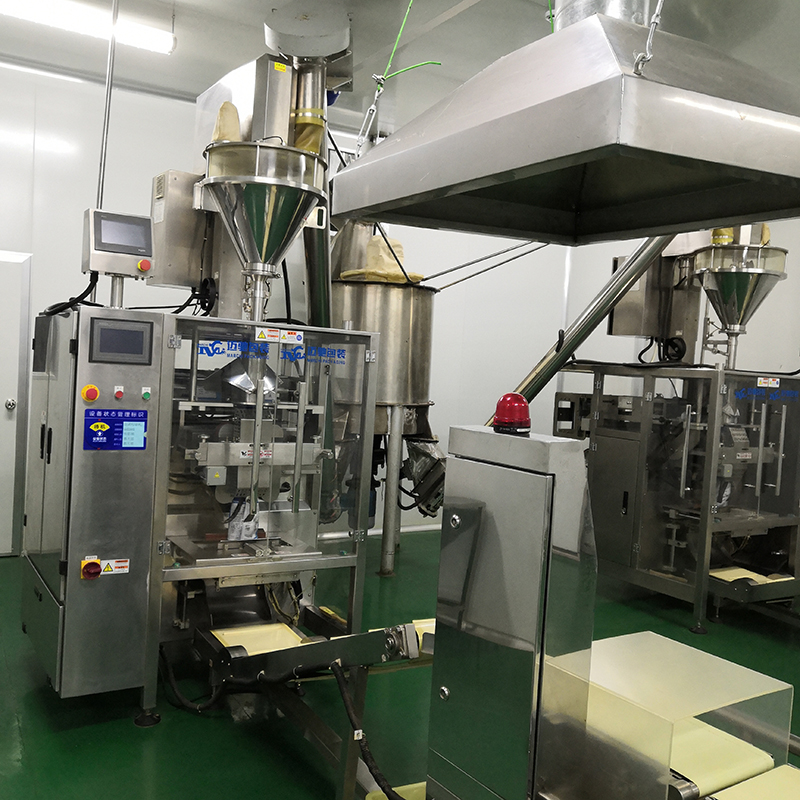
Application Scenarios and Technical Advantages
The remarkable versatility and adaptability of herbs for poultry extend across a wide spectrum of application scenarios within modern, large-scale poultry production systems, providing either highly targeted or broadly holistic health benefits. In commercial broiler operations, these advanced herbal solutions are frequently and strategically integrated into daily feed or drinking water during critical physiological growth phases, such as the crucial post-hatch period, during stressful feed transitions, or in periods characterized by high environmental stressors, with the primary aim of mitigating common and costly challenges like necrotic enteritis, coccidiosis, and prevalent respiratory infections. For instance, Rhinitis Cure is meticulously formulated to specifically address respiratory distress, a pervasive and economically significant issue in high-density poultry housing environments. It effectively helps to alleviate debilitating symptoms such as sneezing, coughing, and nasal discharge, thereby preventing serious secondary bacterial infections and significantly improving air sac health, leading to more comfortable and productive birds. In contrast, for layer and breeder flocks, where long-term productivity, sustained reproductive performance, and consistent egg quality are absolutely paramount, specifically formulated herbal supplements contribute to persistent gut health, enhanced eggshell quality and integrity, and robust immunity against a wide array of diseases that could otherwise compromise laying consistency or fertility rates. Beyond direct disease prevention, these natural solutions also play a crucial role in contributing to significantly improved Feed Conversion Ratios (FCR) by optimally enhancing digestive enzyme activity and maximizing nutrient absorption, leading directly to more efficient weight gain in broilers or sustained high-level egg production in layers. The inherent anti-inflammatory and potent antioxidant properties of many botanicals further reduce cellular damage resulting from metabolic stress, ultimately enhancing overall bird vitality, longevity, and overall flock performance, showcasing the broad advantages of high-quality herbs for poultry.
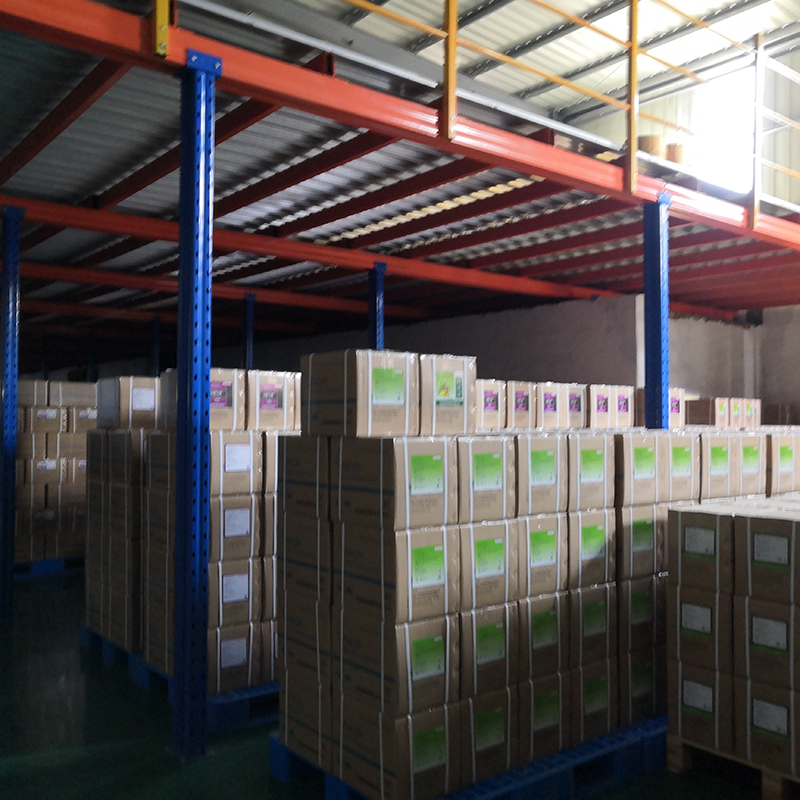
Technically, the advantages of strategically integrating herbs for poultry diseases into comprehensive farm management protocols are profoundly multifaceted and economically impactful. Firstly, they offer a sustainable, highly sought-after alternative to conventional prophylactic antibiotics, directly addressing escalating global concerns about antimicrobial resistance and meeting strong consumer preferences for antibiotic-free poultry products. Secondly, many complex herbal compounds exert potent synergistic effects, meaning that a carefully formulated blend of different herbs can collectively provide a broader spectrum of biological activity and demonstrably enhanced efficacy compared to isolated, single-compound interventions. This often includes a wide range of multifaceted actions such as direct antimicrobial properties, potent immunomodulation (significantly boosting the bird's own innate and adaptive immune system), anti-inflammatory responses to reduce tissue damage, and natural detoxification pathways. Thirdly, a significant practical advantage is that natural herbal remedies typically boast zero withdrawal periods, allowing for continuous, uninterrupted application without negatively impacting processing schedules or the marketability of poultry products, representing a substantial logistical and economic advantage for large-scale commercial operations. Furthermore, the inherent palatability of well-formulated herbal products ensures consistent and uniform intake by the birds, thereby maximizing their therapeutic benefits and ensuring reliable delivery of active compounds. Unlike some synthetic drugs that may carry the risk of adverse side effects or accumulate in animal tissues, botanical solutions are generally recognized as safe (GRAS) when meticulously sourced, expertly formulated, and precisely administered, leading to healthier birds and a demonstrably safer end product for human consumption. These compelling technical merits unequivocally underscore the strategic value of advanced herbal supplements in creating robust, resilient, and economically viable poultry production systems that meet both current and future industry demands for sustainable, ethical, and safe food production worldwide.
Manufacturer Comparison and Customization Solutions
When meticulously evaluating potential suppliers of high-quality herbs for poultry, discerning poultry producers and procurement specialists must carefully consider several key factors that extend far beyond mere product claims or superficial marketing. A paramount aspect is the manufacturer's unwavering commitment to rigorous scientific research and development, including the pioneering of proprietary blends and the implementation of patented extraction processes that are specifically designed to enhance both the efficacy and bioavailability of the active compounds. Leading manufacturers demonstrably distinguish themselves through the implementation of robust and internationally recognized quality control systems, often holding prestigious certifications such as ISO 9001 (for comprehensive Quality Management Systems), ISO 22000 (for Food Safety Management Systems), and GMP (Good Manufacturing Practices) specifically for feed additives, all of which signify strict adherence to the highest international standards for consistent production quality and uncompromised product safety. Transparency in the entire supply chain, including detailed ingredient sourcing, readily available laboratory testing results for potential heavy metals and other contaminants, and precise specifications for active compound concentrations, are all undeniable hallmarks of truly reputable and trustworthy suppliers. Furthermore, the breadth and depth of technical support offered, including expert on-farm consultation, precise dosage guidance, and responsive post-sales service, can significantly impact the successful integration of herbal products into existing, complex poultry health programs. Companies that invest substantially in independent clinical trials and diligently publish their findings in reputable, peer-reviewed scientific journals demonstrate an unparalleled degree of authoritativeness and trustworthiness, providing solid, evidence-based assurance of consistent product performance and safety, making them ideal partners for sourcing effective herbs for poultry solutions. This comprehensive due diligence is absolutely essential for establishing long-term, mutually beneficial partnerships that truly support sustainable and economically viable poultry health management.
Customization solutions are increasingly pivotal for large-scale poultry operations that frequently face unique regional environmental challenges or specific, localized disease pressures. A truly premium manufacturer of herbs for poultry diseases should offer the profound flexibility to develop bespoke herbal formulations meticulously tailored to particular farm environments, specific avian genetic strains, or prevalent pathogen profiles that are not adequately addressed by generic solutions. This highly specialized approach might involve carefully adjusting the concentrations of certain key active compounds, incorporating specific herbs known to target local disease variants, or developing different, optimized delivery formats (e.g., highly water-soluble powders, custom feed premixes, or concentrated liquid solutions) to seamlessly suit existing farm infrastructure and diverse management practices. Such highly tailored approaches enable maximum efficacy and superior cost-efficiency by precisely addressing specific, nuanced needs rather than relying on broad, less effective generic solutions. The comprehensive customization process typically begins with a detailed, in-depth consultation to thoroughly assess the farm's historical health data, current operational challenges, and overarching management objectives. Based on this thorough assessment, a dedicated team of highly qualified veterinary nutritionists and expert herbal specialists collaboratively develops a customized formula, which is then followed by rigorous testing to ensure optimal stability, palatability, and verified efficacy under simulated and real-world conditions. This elevated level of personalized service demonstrates a deep, unwavering commitment to partnership and proactive problem-solving, ensuring that the chosen herbal intervention is optimally suited to consistently achieve desired health and performance outcomes, ultimately maximizing the return on investment for the discerning poultry producer by leveraging the power of specialized herbs for poultry.
Application Cases and Customer Success
The profound practical utility and significant economic benefits of strategically integrating herbs for poultry into daily farm management are most compellingly illustrated through verifiable successful application cases and documented customer success stories. Consider, for instance, a large-scale broiler farm located in Southeast Asia that was persistently facing recurrent outbreaks of chronic respiratory disease (CRD) and mycoplasmosis, leading directly to elevated mortality rates, reduced feed intake, and significantly compromised growth performance. After meticulously implementing a comprehensive health program that specifically included Rhinitis Cure, administered via drinking water during high-risk periods and environmental stressors, the farm observed a remarkable and statistically significant reduction in clinical signs of respiratory distress, with coughing and sneezing decreasing by an average of 65% within just two weeks of consistent application. Crucially, mortality rates directly associated with respiratory complications dropped by an impressive 40% over a typical 6-week grow-out cycle, and average daily weight gain (ADWG) improved by a notable 5-7%, consistently translating into superior Feed Conversion Ratios (FCR) and, ultimately, higher overall profitability for the operation. This particular case unequivocally highlights the product's efficacy not just in symptomatic alleviation but in its vital contribution to overall flock resilience and undeniable economic viability, robustly proving that advanced chinese medicinal approaches offer tangible, measurable benefits in modern poultry farming. Furthermore, the farm also reported a notable decrease in the need for conventional antibiotic interventions for respiratory issues, aligning perfectly with their strategic goal of producing antibiotic-free poultry and meeting the increasingly stringent market demands for sustainable and healthier animal protein production. This case exemplifies the real-world impact of high-quality herbs for poultry.
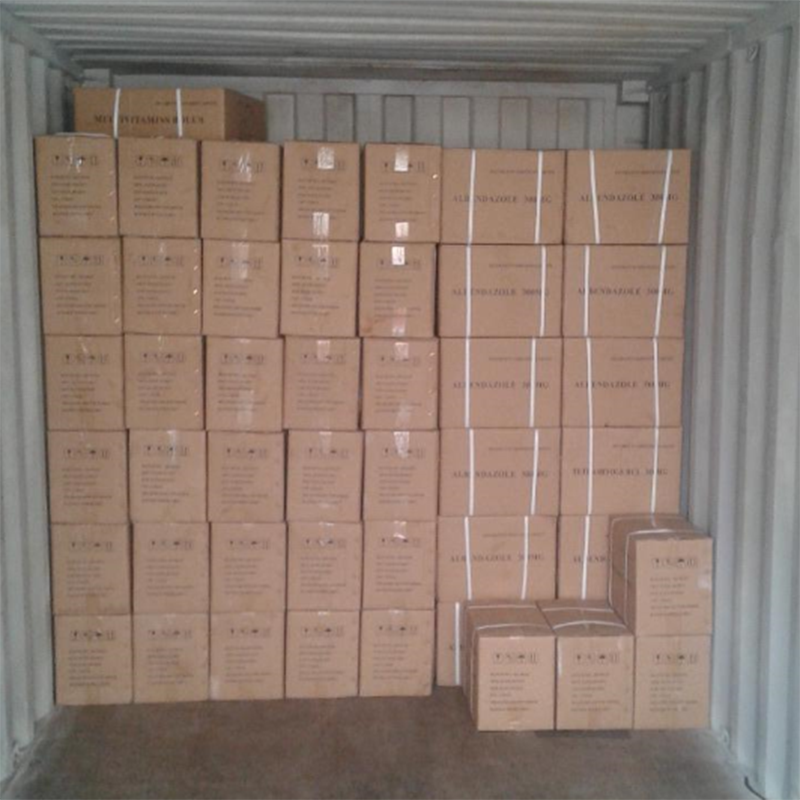
Another equally compelling example of profound customer success comes from a large-scale layer farm that had been experiencing persistent issues with gut dysbiosis, leading to associated poor egg production rates and compromised eggshell quality and integrity. By strategically incorporating a meticulously customized herbal blend specifically focused on enhancing gut health and modulating the birds' immune response, which seamlessly complemented their existing feed program, the farm witnessed a significant 1.5% increase in peak egg production and a sustained, measurable improvement in eggshell thickness and overall strength, concurrently reducing egg breakage rates by a commendable 0.8%. Furthermore, the entire flock exhibited improved flock uniformity and a markedly reduced incidence of watery droppings, which are clear indicators of better overall gut health and digestive efficiency. These tangible and quantifiable improvements directly translated into enhanced market value for their premium eggs and substantially reduced economic losses stemming from downgraded or unsaleable products. Testimonials from such satisfied clients consistently emphasize not only the robust efficacy of the herbal solutions but also underscore the invaluable benefit of ongoing technical support, expert consultation, and highly tailored advice provided by the manufacturer. Customer feedback frequently highlights a significant reduction in overall veterinary costs, a lower reliance on conventional pharmaceutical interventions, and a general, pervasive improvement in flock well-being, vitality, and key productivity metrics, all underscoring the long-term sustainability and enhanced profitability driven by the strategic adoption of natural herbs for poultry diseases in contemporary poultry farming operations. This unwavering commitment to delivering measurable and verifiable results through evidence-based herbal solutions fosters strong, enduring client relationships and builds undeniable industry trust and credibility.
Frequently Asked Questions (FAQ)
Q1: What is the typical delivery timeframe for large orders of Rhinitis Cure?
For large or bulk orders, our standard delivery timeframe is typically 3-5 business days within the regional market after successful order confirmation and payment processing, with international shipments varying based on the specific destination country, local customs clearance procedures, and chosen shipping methods. We meticulously maintain robust inventory levels and leverage highly efficient logistics networks to ensure prompt dispatch and minimize overall lead times, recognizing the critical importance of timely delivery in poultry operations. For highly customized herbal formulations, the lead time may extend slightly to accommodate specific production runs, specialized ingredient sourcing, and rigorous quality assurance testing, but our dedicated team provides clear and transparent timelines during the initial consultation phase, often aiming for delivery within 7-10 business days from the final formulation approval and confirmation.
Q2: What kind of warranty or efficacy guarantee do you provide for your herbal poultry products?
We stand firmly behind the superior quality and demonstrated efficacy of all our herbal poultry products. We provide a comprehensive product quality guarantee ensuring that our products consistently meet or exceed the precise specifications outlined in their technical data sheets, including verified active compound concentrations, rigorous purity standards, and physical parameters. While individual farm results can naturally vary due to a multitude of factors such as unique management practices, specific environmental conditions, and pre-existing disease challenges, we are unequivocally committed to working closely and collaboratively with our clients to ensure optimal product application and maximize desired health and performance outcomes. Our highly skilled technical support team provides comprehensive guidance and expert recommendations to help achieve the reported benefits and proactively address any operational challenges that may arise. In the rare event of a verifiable product defect or a deviation from specified quality parameters, we offer prompt replacement or appropriate credit, subject to our standard terms and conditions of sale and quality assurance protocols, ensuring your investment in herbs for poultry is protected.
Q3: How do your herbal solutions integrate with existing vaccination programs or conventional treatments?
Our herbal solutions are meticulously designed to be highly complementary to existing vaccination programs and can frequently be used effectively in conjunction with conventional pharmaceutical treatments, always under expert veterinary supervision. They primarily function by synergistically enhancing the bird's natural innate and adaptive immunity, significantly reducing detrimental inflammatory responses, and providing powerful natural antimicrobial support, thereby collectively creating a more resilient, healthier, and robust flock. In many documented cases, the strategic integration of our herbs for poultry diseases can lead to a demonstrable reduction in the reliance on or the required dosage of conventional pharmaceuticals, especially for routine prophylactic use, thereby mitigating concerns about antimicrobial resistance. We strongly recommend consulting with your qualified avian veterinarian to collaboratively develop a holistic and integrated health plan that strategically incorporates our products for maximum synergistic benefits and to ensure no potential contraindications with any concurrent treatments that may be in use, optimizing flock health outcomes.
Q4: What technical support is available after purchase?
We offer comprehensive and ongoing technical support to ensure our clients achieve the absolute maximum value and return on investment from our products. This unparalleled support includes direct access to our highly experienced team of avian veterinarians, animal nutritionists, and herbal specialists for in-depth consultation on optimal product application, precise dosage recommendations tailored to specific flock needs, and seamless integration into existing farm management protocols. We provide continuous support for troubleshooting any issues, rigorous performance monitoring, and detailed data analysis to help you accurately track and quantify improvements in flock health and productivity metrics over time. Furthermore, we offer a wealth of educational resources, insightful webinars, and on-site visits where feasible, consistently empowering our clients with the critical knowledge and practical tools necessary to continuously optimize their poultry health strategies. Our unwavering commitment extends far beyond mere product delivery, focusing instead on fostering strong, long-term partnerships through expert, proactive guidance and dedicated, responsive customer service, truly making our herbs for poultry a complete solution.
Authoritative References
- Windisch, W., Schedle, K., Plitzner, C., & Kroismayr, D. (2008). Use of phytogenic products as feed additives for swine and poultry. Journal of Animal Science, 86(14_suppl), E140-E148.
- Hasani, S., Sharifi, S. D., & Sharifi, M. (2010). Effects of herbal medicine on growth performance and immune response of broilers. Iranian Journal of Veterinary Research, 11(3), 209-215.
- Wang, Z., Zhang, Z., Zhang, X., & Lv, Y. (2018). Application of traditional Chinese medicine in animal husbandry and veterinary medicine. Journal of Traditional Chinese Veterinary Medicine, 35(1), 5-11.
- Greathead, H. (2003). Plants and plant extracts for improving animal productivity. Proceedings of the Nutrition Society, 62(1), 279-291.
- Akbarian, A., Golian, A., & Kermanshahi, H. (2012). The effects of different levels of garlic (Allium sativum) powder on performance, carcass characteristics, and blood parameters of broiler chicks. Journal of Applied Animal Research, 40(4), 281-286.
Post time: August 19, 2025

